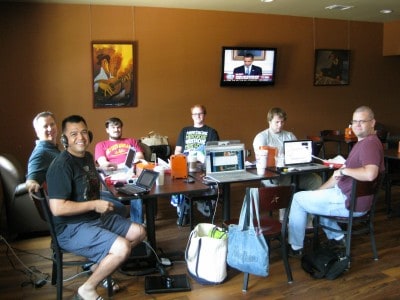
With the rise of remote work, more people move to small towns even temporarily to work remotely. Small town businesses have the opportunity to tap remote workers as new customers.
Why remote workers are hard to market to
New residents who work remotely can be hard to find: they aren’t all working at the same place, and because they may see themselves as only temporary residents, they may not participate in the traditional events or organizations in the community.
Here are some suggestions to connect with them:
1. Partner With Other Businesses
One of the best ways to reach remote workers is to partner with other businesses that cater to them. Co-working spaces provide a place for remote workers to network, socialize, and work collaboratively. By partnering with a co-working space, businesses can host events, offer discounts or promotions, or simply use the space as a way to meet and network with remote workers.
Similarly, apartment owners and real estate agents can be great partners for small businesses looking to reach new residents or attract remote workers to their communities. Don’t forget about AirBNB hosts. Many remote workers are transient, and they may be looking for short-term housing while they explore new communities.

An informal co-working event like Jelly can help welcome remote workers to your community. Photo CC by Sheila Scarborough
2. Welcome Remote Workers to Your Community
Small businesses can also market to remote workers by welcoming them to their local communities.
Hosting events, workshops or meetups can be a great way to connect with remote workers and show them what your community has to offer. By providing a welcoming and inclusive environment, small businesses can build relationships with remote workers and foster loyalty.
Participating in existing community events and festivals is also smart. Remote workers often look to local events for chances to socialize and be part of their temporary or newly-full time residence. Small town businesses should already be participating in local events to reach locals and tourists!
3. Be online and market online
Having a social media presence on at least one channel is essential for small businesses looking to reach remote workers. Facebook, Instagram, and Twitter are all great platforms for connecting with potential customers.
Email marketing is also an effective way to stay connected with remote workers. By collecting email addresses through in-store sign-ups or online forms, small businesses can keep remote workers updated on events, promotions, and new products or services.
Want to recruit remote workers to live in your town?
The 3 major factors are incentives, flexible workspaces, and a sense of community.
And here’s how to recruit new residents, remote workers, or remote entrepreneurs by figuring out what makes your town attractive.
